Filter by
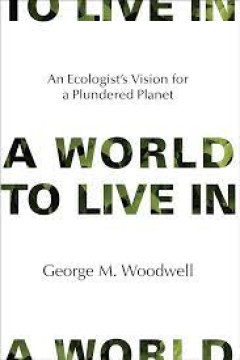
A world to live in :an ecologist's vision for a plundered planet
A century of industrial development is the briefest of moments in the half billion years of the earth's evolution. And yet our current era has brought greater changes to the earth than any period in human history. The biosphere, the globe's life-giving envelope of air and climate, has been changed irreparably. In A World to Live In, the distinguished ecologist George Woodwell shows that the bio…
- Edition
- -
- ISBN/ISSN
- 9780262333689
- Collation
- 1 online resource (xvi, 227 pages)
- Series Title
- -
- Call Number
- -
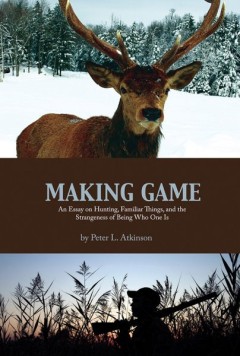
Making Game an Essay on Hunting, Familiar Things, and the Strangeness of Bein…
Making Game is a mixed-genre composition in which the author reflects on the philosophical and ethical implications of hunting wild game. This engaging essay is informed by the author’s significant background of scholarly engagement with the phenomenological tradition in modern philosophy.
- Edition
- -
- ISBN/ISSN
- 9781897425282.01
- Collation
- -
- Series Title
- -
- Call Number
- 165 pages
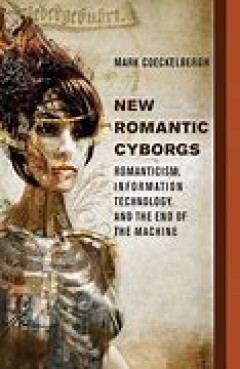
New Romantic Cyborgs: Romanticism, Information Technology, and the End of the…
A detailed examination of the UN's Sustainable Development Goals and the shift in governance strategy they represent.OCLC-licensed vendor bibliographic record.
- Edition
- -
- ISBN/ISSN
- 9780262337410
- Collation
- 1 online resource (xv, 333 pages).
- Series Title
- -
- Call Number
- -
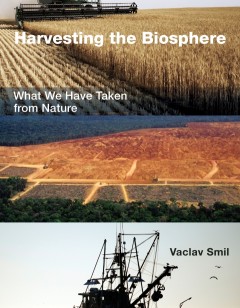
Harvesting the biosphere :what we have taken from nature
An interdisciplinary and quantitative account of human claims on the biosphere's stores of living matter, from prehistoric hunting to modern energy production. The biosphere—the Earth's thin layer of life—dates from nearly four billion years ago, when the first simple organisms appeared. Many species have exerted enormous influence on the biosphere's character and productivity, but none …
- Edition
- -
- ISBN/ISSN
- 9780262312264
- Collation
- 1 online resource
- Series Title
- -
- Call Number
- -
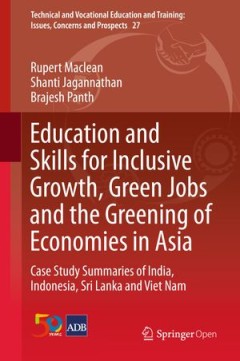
Education and Skills for inclusive Growth, Green Jobs and the Greening of E…
Education for Sustainable Development; Green Growth; Green Jobs; Inclusive Growth; Equity in the Promotion of Economic Growth; Environmental Education; Green Economies
- Edition
- -
- ISBN/ISSN
- 9789811065583
- Collation
- -
- Series Title
- -
- Call Number
- 650
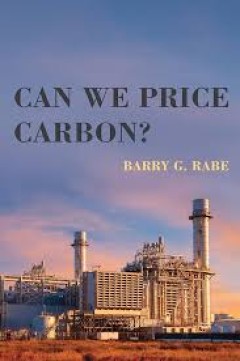
Can we price carbon?
A political science analysis of the feasibility and sustainability of carbon pricing, drawing from North American, European, and Asian case studies.Climate change, economists generally agree, is best addressed by putting a price on the carbon content of fossil fuels--by taxing carbon, by cap-and-trade systems, or other methods. But what about the politics of carbon pricing? Do political realiti…
- Edition
- -
- ISBN/ISSN
- 9780262346580
- Collation
- 1 online resource (xxvi, 347 pages) :illustrations.
- Series Title
- -
- Call Number
- -
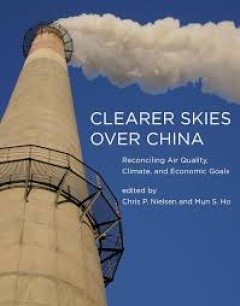
Clearer skies over China: reconciling air quality, climate, and economic goals
China's carbon dioxide emissions now outstrip those of other countries and its domestic air quality is severely degraded, especially in urban areas. Its sheer size and its growing, fossil-fuel-powered economy mean that China's economic and environmental policy choices will have an outsized effect on the global environmental future. This book offers an integrated analysis of China's economy, emi…
- Edition
- -
- ISBN/ISSN
- 0262315416
- Collation
- 1 online resource.
- Series Title
- -
- Call Number
- -
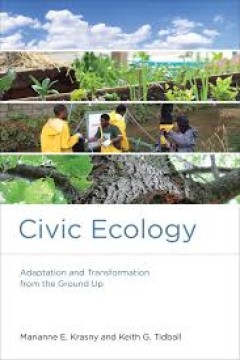
Civic Ecology: Adaptation and Transformation from the Ground Up
Stories of environmental stewardship in communities from New Orleans to Soweto accompany an interdisciplinary framework for understanding civic ecology as a global phenomenon.OCLC-licensed vendor bibliographic record.
- Edition
- -
- ISBN/ISSN
- 9780262327169
- Collation
- 1 online resource :illustrations.
- Series Title
- -
- Call Number
- -
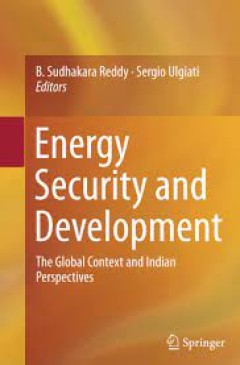
Energy Security and Development the Global Context and Indian Perspectives
This volume provides a systematic framework for energy suppliers, policy makers, academics, students, and all others interested in energy security, and analyzes key issues concerning energy, security and sustainability with the help of a wealth of data. While sustainability is the broadest objective, energy security is an important part of it, at the global, national and societal levels. The de…
- Edition
- 1
- ISBN/ISSN
- 978-81-322-2065-7
- Collation
- 117 b/w illustrations
- Series Title
- -
- Call Number
- -
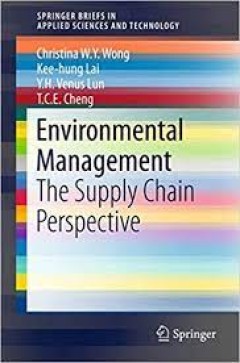
Environmental Management the Supply Chain Perspective
In view of the increasing quest for environmental management in businesses, this book provides a good reference to firms to understand how they may manage their supply chains to improve business and environmental performance. The book consists of six chapters covering such topics as environmental management, environmental management practices with supply chain efforts, collaborative environment…
- Edition
- 1
- ISBN/ISSN
- 978-3-319-23681-0
- Collation
- XI, 140
- Series Title
- -
- Call Number
- -
 Computer Science, Information & General Works
Computer Science, Information & General Works  Philosophy & Psychology
Philosophy & Psychology  Religion
Religion  Social Sciences
Social Sciences  Language
Language  Pure Science
Pure Science  Applied Sciences
Applied Sciences  Art & Recreation
Art & Recreation  Literature
Literature  History & Geography
History & Geography